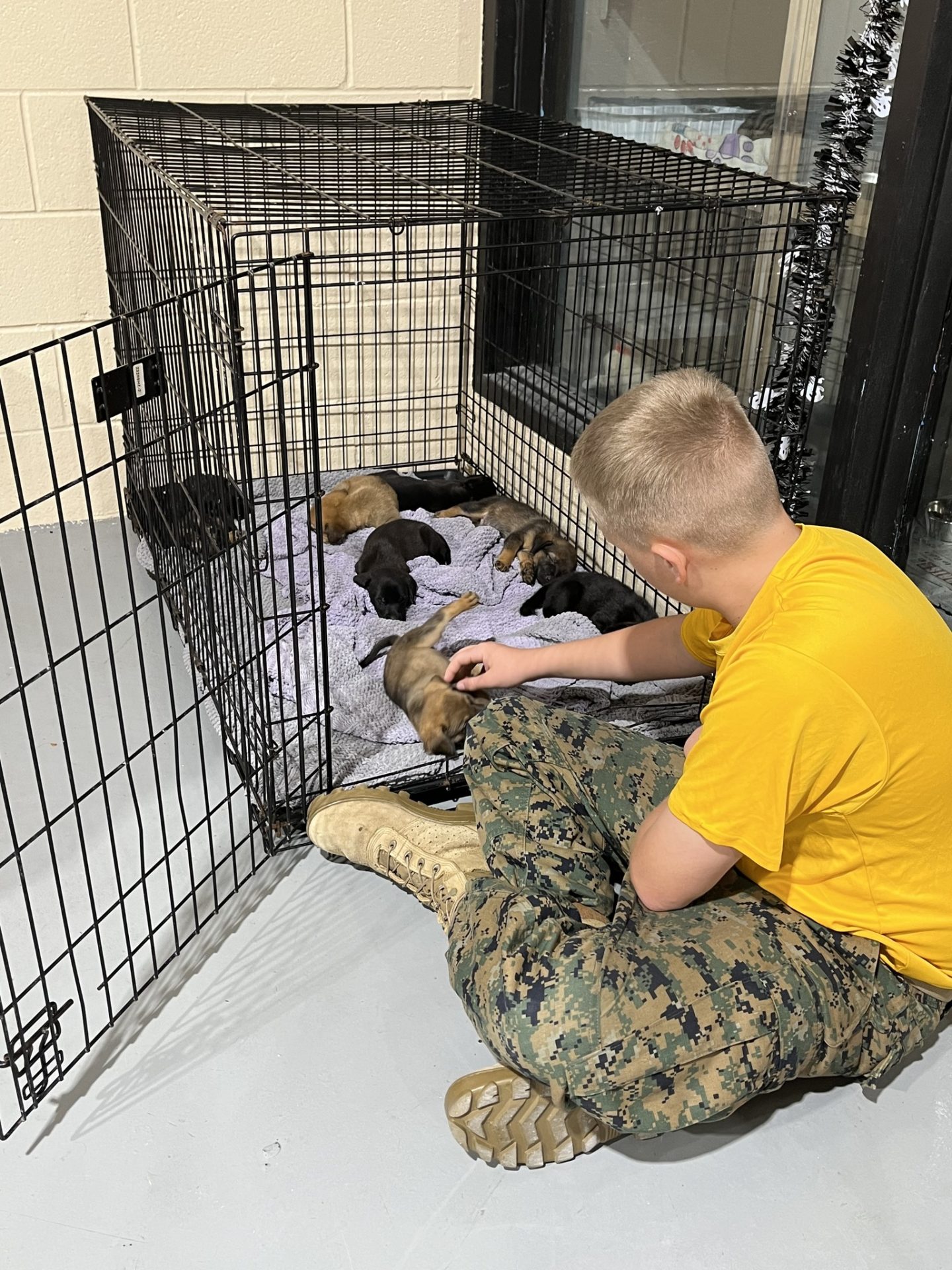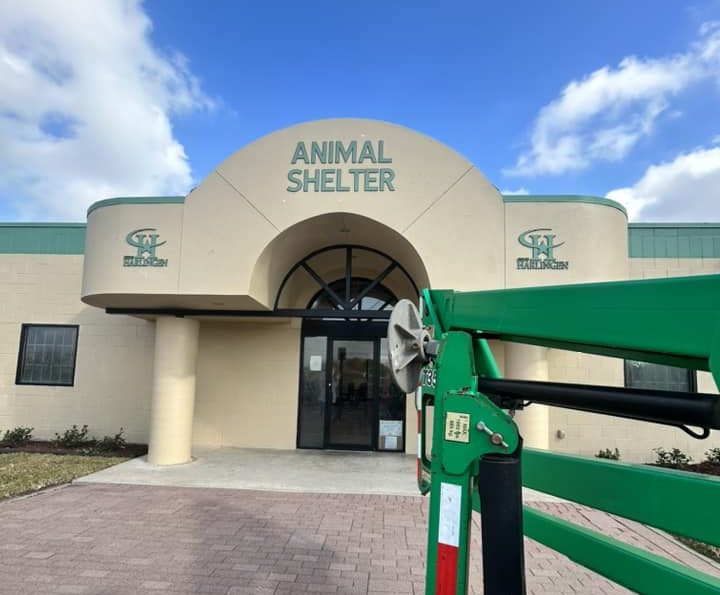|
Only have a minute? Listen instead
Getting your Trinity Audio player ready...
|

HARLINGEN — City officials are closing the new Harlingen Animal Shelter on Sundays to disinfect the building following a distemper outbreak that led them to euthanize more than 300 animals this summer.
Based on veterinarian Robert Kellogg’s recommendations, they’re aiming to eliminate viruses while better guarding the shelter from disease which led to the high euthanasia rate, Assistant City Manager Josh Ramirez said, adding they’re questioning whether “sabotage” sparked the outbreak.
Starting Sunday, officials will be closing the shelter to residents while staff deep-cleans the 4,340-square-foot building, he said.
“We’re disinfecting with the emphasis on trying to contain the virus, to prevent it from spreading,” he said, adding staff are planning to move the shelter’s animals into outdoor kennels during deep-cleaning.
Following Kellogg’s recommendations, officials are also vaccinating animals before allowing them to enter the shelter, Ramirez said.
“They unload animals from the truck and vaccinate them to prevent the spread of any other illnesses,” he said.
Now, Kellogg’s also recommending the shelter purchase additional vaccines to prevent diseases such as parvo and bordetella, Ramirez said.
“He’s recommending more vaccines — preventative and for additional treatments,” he said.
Under its new schedule, the shelter will open from 1 to 6 p.m. Mondays through Saturdays.
Officials are trying to prevent conditions that led to this summer’s distemper outbreak.
At City Hall, some residents have spoken before city commissioners, condemning the shelter’s euthanasia rate.
In July, the shelter euthanized more than 120 of 197 animals accepted, while euthanizing more than 100 and accepting 92 animals in August, Shannon Harvill, the city’s environmental health director overseeing the operation, told city commissioners earlier this month.
In September, the shelter euthanized as many as 100 of 157 animals accepted, she said.
In those cases, she said, Kellogg recommended euthanasia.

On Thursday, Ramirez did not have updated information on the shelter’s euthanasia rate.
In the shelter, distemper broke out around July.
“They tried to contain it,” Ramirez said, adding Kellogg “believed it was containable.”
Officials didn’t expect the disease would spread “that fast — not that much,” Ramirez said.
Meanwhile, the shelter’s crowded conditions helped speed the spread of the disease, while residents continued dropping off sick animals, he said.
“We became overwhelmed with people constantly dropping off animals,” he said. “So many people drop off sick animals.”
The rapid spread of the disease has led officials to question whether “sabotage” sparked the outbreak, Ramirez said.
“For how rapidly this spread, you have to wonder,” he said. “It could have been intentional — somebody dropping off extremely sick animals.”
In January, city officials took over the shelter after the Rio Grande Valley Humane Society, operating what it described as a “no-kill” shelter, stopped accepting residents’ animals, Ramirez said.
To launch operations, commissioners pulled $365,937 from the city’s general fund budget to foot the payroll for an 11-member staff, with Harvill overseeing the operation.
A month later, commissioners entered into a $1,248 monthly contract with Kellogg, who co-founded the Humane Society during his 40-year career.
Since then, commissioners have funded requests including the purchase of a $38,360 animal transport van and a $900 computer software program while hiring a second animal adoption coordinator at a salary of $40,771 with benefits.
For months, officials have been working to draw grant money to build a bigger animal shelter.



